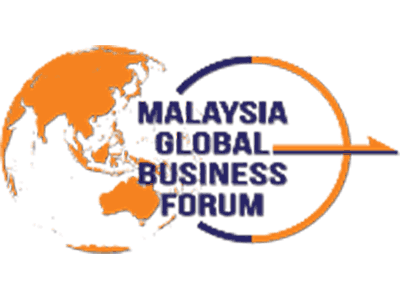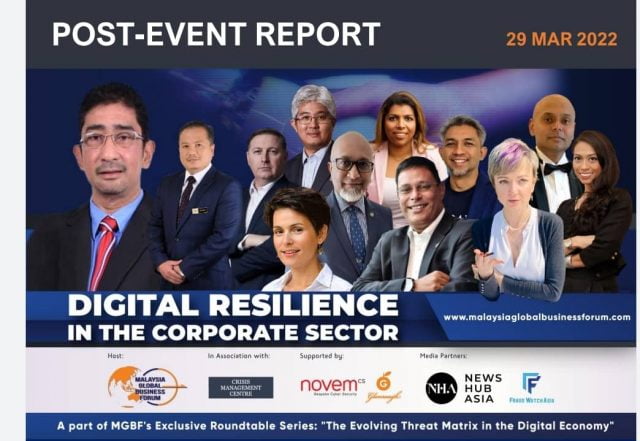 Corporations are in a digital arms race; it is just that many do not realise it. A new breed of mercenaries is looking to exploit gaps in cybersecurity and digital frameworks. This coupled with weaponised communications designed to bring companies to their knees, organisations now need leaders who understand the new rapidly evolving strategic landscape and its impact on digital resilience.
Corporations are in a digital arms race; it is just that many do not realise it. A new breed of mercenaries is looking to exploit gaps in cybersecurity and digital frameworks. This coupled with weaponised communications designed to bring companies to their knees, organisations now need leaders who understand the new rapidly evolving strategic landscape and its impact on digital resilience.
Critical questions discussed during the event that enabled better-informed decisions are:
- How to cascade effective strategy and policy into actionable projects that drive digital resilience.
- The interconnectedness of strategy and policy, and how to tackle the gaps in organisations or frameworks that could lead to a crisis.
- How to recover from a crisis that plays out in the media or social media.
- Addressing the opportunity cost of inaction or lack of investment into digital infrastructure.
- Addressing the vulnerability of critical digital infrastructure, especially in a post-COVID-19 era.
EXECUTIVE SUMMARY
The Malaysia Global Business Forum (MGBF)’s exclusive roundtable on ‘Digital Resilience in the Corporate Sector’ was held in a hybrid setting on 29 March 2022 at the Element by Westin Kuala Lumpur. In attendance as guest of honour was YB Datuk Zahidi Bin Zainul Abidin, Deputy Minister of Communications and Multimedia Malaysia.
The discussion focused on addressing digital resilience in the corporate sector and how business leaders can mitigate the threats that could lead to a crisis. Speakers at the event also include Chief Executive Officer of Malaysia Competition Commission (MyCC), Iskandar Ismail; Chief Executive Officer of Big Dataworks Sdn Bhd., Sheriza Zakaria; Chief Executive Officer of The Center of Applied Data Science (The CADS), Sharala Axryd; Director of International Business Development for Perfios Software Solutions Pvt. Ltd., Nantha Subramanian; Chief Executive Officer of Matryzel Consulting Inc., Bobby Varanasi; Founder and Director of SoCo and World Wonderers (WoW), Dr Sophie Lemière; Assistant Professor at the Faculty of Social Sciences, University of Nottingham Malaysia, Dr Julia Roknifard; Co-Chairman of Malaysia Global Business Forum and Executive Director of Tindakan Strategi Sdn Bhd, Rizal Kamaruzzaman; and Chief Executive Officer of Novem CS Sdn Bhd., Murugason R. Thangaratnam. The panel session was moderated by Editor-at-Large for News Hub Asia, Ruzanna Muhammad.
This impactful event was the second in Malaysia Global Business Forum’s 2022 series of exclusive roundtables on “The Evolving Threat Matrix of the Digital Economy”. The series will confront critical questions impacting the future of business in the rapidly digitising world.
ISSUES
Issues highlighted during the discussion were:
i) A lack of digital resilience in the corporate sector leads to reputational physical and financial losses. Public listed companies are particularly vulnerable but do not fully understand the evolving threat matrix. Small and Medium Enterprises are also increasingly facing cyber threats and potential devastating effects.
ii) Government policy-makers require continuous education and awareness of cyber threats and issues to be able to formulate effective policies that will make Malaysia a more business-friendly ecosystem.
iii) A gap analysis on digital resilience is required at all levels as a first step in protecting local and foreign investors.
iv) Digital resilience and data literacy is an issue that needs to be inculcated from early-stage education onwards.
v) Communicators in government and corporate sectors need to be aware of cyber threats and digital deficiencies to be able to effectively communicate in times of crisis.
vi) The media needs to be both aware and educated of digital economy issues especially cyber threats to be able to communicate in times of crisis and not to be accused of propagating fake news.
vii) Various ministries and agencies have to step up efforts to embed digitalisation in their agenda. More resources are needed for the nation to keep up with the pace of change, especially in technological advancement, labour market requirements, business model innovation and changing public expectations. This includes understanding regional and global realities to ensure Malaysia remains competitive in this context.
viii) The Fourth Industrial Revolution (4IR) and the rapid advancement of disruptive technologies including digital technology have shown the potential to significantly transform the economic landscape around the world. If the government and corporate sector do not embrace digitalisation, Malaysia will lose out in the increasingly competitive global economy.
RECOMMENDATIONS
The outcome of the discussion highlighted several recommendations and critical success factors:
i) To develop policies that allow the corporate sector, Malaysia to invest in digital resilience and embrace the opportunities of rapid digitalisation that has and will continue to improve the nation’s resilience in post-COVID-19 endemic phase.
ii) To continue to invest in human capital development but with a focus on threat mitigation and becoming digital and cyber resilient in the cyber-media dynamic.
iii) Strengthening and nurturing skilled human capital is essential in the digital economy ensuring that every individual has a responsibility to themselves to be digitally resilient by arming themselves with the right skill sets and continuously upskilling whenever possible.
iv) The media council remains an important cog in the clockwork of any future-facing digital and cyber resilience and as such should be empowered to deal with this issue and opportunities.
v) To educate the public, particularly internet users need to be wary of various cyber security incidents via various initiatives and programme.
vi) To prepare children to be data literate at the school age. Data is the new currency, data is the new oil and if abused, data can also be weaponised. Knowing and understanding data is crucial.
vi. To lay the groundwork for the country’s transformation into an advanced digital economy. The construction and protection of advanced digital infrastructure that will facilitate innovation, and establishing an ecosystem is a minimum baseline requirement.
vii. The government has a responsibility to encourage digital adoption and should play a key role in driving and adopting emerging technologies. This should include a specific emphasis on SMEs and GLCs as the twin drivers of the future-facing economy.
viii. For the government to continue to establish regulatory frameworks and issue guidelines for the digital economy and at the same time carry out a detailed market review next year on the digital economy. At the same time work with regional partners especially in ASEAN and FTA trading partners to ensure that digital frameworks are aligned.
ix. To adopt more innovative, aggressive, proactive and adaptive approach to stay ahead of cyber threats and efforts are internationally benchmarked and part of an ease of doing business calculation.
x. Develop communications strategies that position the developments in digital resilience, including cyber resilience as a key selling point for international investors looking to have secured and productive supply chain components located in Malaysia.
For the full report, please click on the image below:

Services
Stakeholder mapping, analysis, engagement and communication needs to be detailed to avoid business losses or even worse, a crisis. How can you do this effectively to prevent failure? ...
Data-driven business decisions have never been as crucial, especially in this era. MGBF leverages off, technology, experience and market presence to aid businesses in making accurate decisions. ...
MGBF provides comprehensive strategic advice and results-focused solutions to solve clients' problems in business-government relations so they can focus on their core business. ...
A critical business challenge is meeting the right decision-makers and potential buyers through the best channel and platform. How will you improve your business competency? ...
Upcoming Events
In this episode of 'A Working Lunch with Nordin', MGBF's Nordin Abdullah and regional commentator Eddin Khoo will discuss the biggest threats and opportunities for businesses as we look to manage change in the South China Sea.
This MGBF Roundtable will feature thought leaders form Japan, Australia, Singapore and Malaysia dealing with the critical issues of manipulation of public listed companies and government and their financial impacts.
A series of networking sessions with various business associations and trade organisations exploring high-value opportunities for business leaders and entrepreneurs looking to build the relationships that matter.
This integrated event will include a forum, dedicated business matching, site visits, a gala dinner and a round of golf. Aptly themed, the focus will be on regional food security issues and trends in the context of the supply chain, agriculture technology and trade regulations and policies.
MGBF In The News
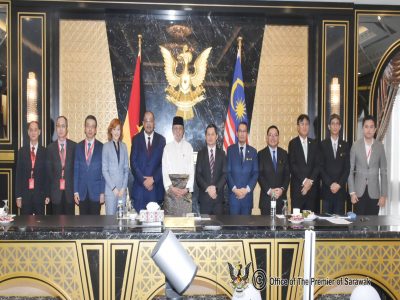
Planet QEOS and China Machinery Engineering Corporation (CMEC) are interested in investing RM10 billion to co-develop advanced Megawatt peak (MWp) agrovoltaic in Baram, to further boost Sarawak’s green energy initiative and food security. Sarawak Premier Datuk Patinggi Tan Sri Abang Johari Tun Openg was briefed on Friday by both the […]

Last week SPM results came out, 373,974 aspirants who have been waiting patiently over the last few months would now know their fate. Some 10,109 have received all A’s, the golden standard of academic success and the ticket to those looking to study the “more advanced” subjects in university. Proudly, […]

The classic knee-jerk reaction is to say, fire the coach, change the leadership of associations, and reduce the funding till they start performing better. This kind of negative reinforcement may work for kindergarten children, but we are dealing with high-performance adults – individuals much further along in their psychological and […]

Since its earliest tea plantations in 1929, Cameron Highlands has grown to become a key player in the agricultural landscape of Malaysia, producing 40 per cent of all vegetables grown. Despite Malaysia shifting its economic focus away from agriculture, the industry remains imperative for food security and the livelihoods of […]

Although at first glance the travel industry and the agricultural sector appear to have nothing in common, they actually share more than meets the eye. The economic benefits of tourism to the agricultural sector can be multiplied several times over. “Tourism brings the end consumers closer to the source, which […]
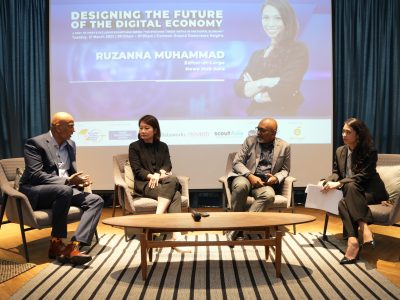
The Malaysia Global Business Forum (MGBF) recently held a high-level roundtable themed ‘Designing the Future of the Digital Economy’, attended by industry leaders and business associations. The guest of honour was Yang Berhormat Syerleena Abdul Rashid, the Member of Parliament (MP) for Bukit Bendera in Penang. The MP’s Special Session […]

The Malaysia Global Business Forum (MGBF) will be hosting a roundtable on ‘Designing the Future of the Digital Economy’ on 23 February 2023. It is the culmination of the first three MGBF Exclusive Roundtable Series titled ‘The Evolving Threat Matrix in the Digital Economy’ held throughout 2022. According to the […]

The Founding Chairman of the Malaysia Global Business Forum (MGBF), Nordin Abdullah, today spoke on Bernama TV’s leading English talk show, The Brief, hosted by Jessy Chahal, on the topic of a stable political reality and what that means for the Malaysian economy. Nordin said, “The first thing that it […]

More than 1,100 years ago, Muhammad ibn Musa al-Khwarizmi was developing the mathematical formulas that we know today as algorithms which now have become so intertwined with the business fortunes of global media giants and the very fabric of geopolitics. A series of recent high level international reports have revealed […]

KSK Land has been recognised by the Malaysia Global Business Forum (MGBF) for its role in attracting high net-worth individuals to Malaysia post-pandemic. The first challenge in investor attraction is “selling” the country. In the context of Asia, Malaysia is competing with some very established investment destinations. The second […]

Malaysia, in particular Kuala Lumpur, continues to position itself as a regional centre to do business, educate a family and enjoy a global lifestyle. One company, KSK Land, has taken the lead in positioning itself and the city of Kuala Lumpur as a property investment destination for the global citizen […]
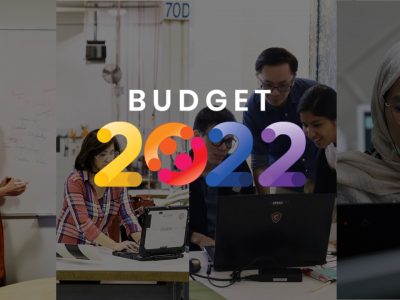
The upcoming budget represents an opportunity to build resilience in the critical sectors that will form the backbone of the country’s future-facing economic ambitions. This however needs to be achieved in the context of managing the community sectors most impacted by COVID-19 over the past two years. The Keluarga Malaysia (Malaysian Family) […]

Malaysia Global Business Forum (MGBF) has moved to support the creative economy as the overall economy moves into a recovery phase following the COVID19 pandemic. As a step in the direction of normalcy, the MGBF has agreed to host the art exhibition “I Know You’re Somewhere So Far” by one […]
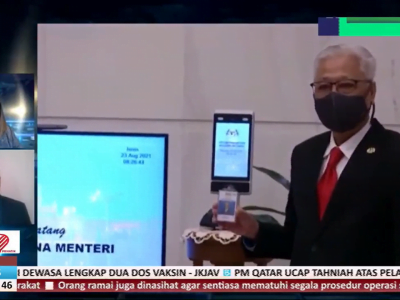
Congratulations to Datuk Seri Ismail Sabri Yaakob for taking up the mantle of the ninth prime minister of Malaysia. There is nothing normal about the situation; it could not have been scripted but it has kept the spectrum of media, mainstream and social, gripped. The first order of business for […]

In a stirring speech to the nation, President Joseph R. Biden, Jr. stamped his brand of leadership on the presidency, in his first act as the 46th president of the United State of America, it signaled several shifts. Perhaps the weather was foreboding with snow falling before the ceremony that […]

KUALA LUMPUR, 6 July 2022 – As the global economy continues to deal with unprecedented levels of disruption caused by the pandemic and the conflict between Russia and Ukraine, the convergence of energy security and food security issues has become a front-of-mind issue faced by policy makers and consumers alike. […]

KUALA LUMPUR, 23 June 2022 — Malaysia Global Business Forum (MGBF) ties up with scoutAsia to ensure that businesses are equipped with deeper regional insights. The past two years has seen a massive shift in the way businesses are conducted with digitisation, digitalisation and automation continuously being adopted to improve […]
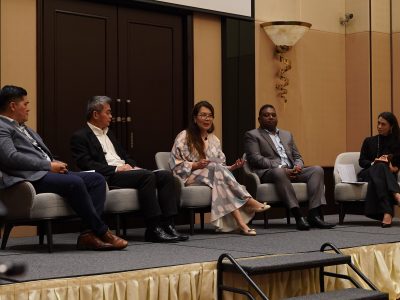
KUALA LUMPUR, 25 May 2022 – The Malaysia Global Business Forum (MGBF)’s exclusive roundtable on ‘Security Concerns in Critical Value Chains’ was held in a hybrid setting yesterday at the Eastin Hotel Kuala Lumpur. The guest of honour was Yang Berbahagia Tan Sri Dato’ Seri Rafidah Aziz, former minister of […]
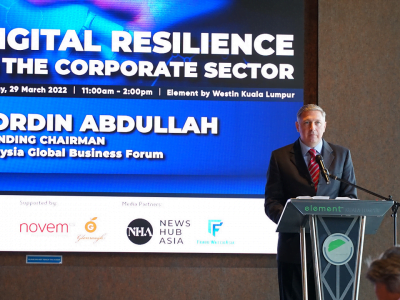
We live in the age of crisis. At the heart of any crisis is the threat of rapid change. Change too deep or too wide that the current coping mechanisms for an individual, corporation or government are unable to remain resilient. An unwelcome paradigm shift, like the proverbial spider, that […]
 Corporations are in a digital arms race; it is just that many do not realise it. A new breed of mercenaries is looking to exploit gaps in cybersecurity and digital frameworks. This coupled with weaponised communications designed to bring companies to their knees, organisations now need leaders who understand the new rapidly evolving strategic landscape and its impact on digital resilience.
Corporations are in a digital arms race; it is just that many do not realise it. A new breed of mercenaries is looking to exploit gaps in cybersecurity and digital frameworks. This coupled with weaponised communications designed to bring companies to their knees, organisations now need leaders who understand the new rapidly evolving strategic landscape and its impact on digital resilience.
































